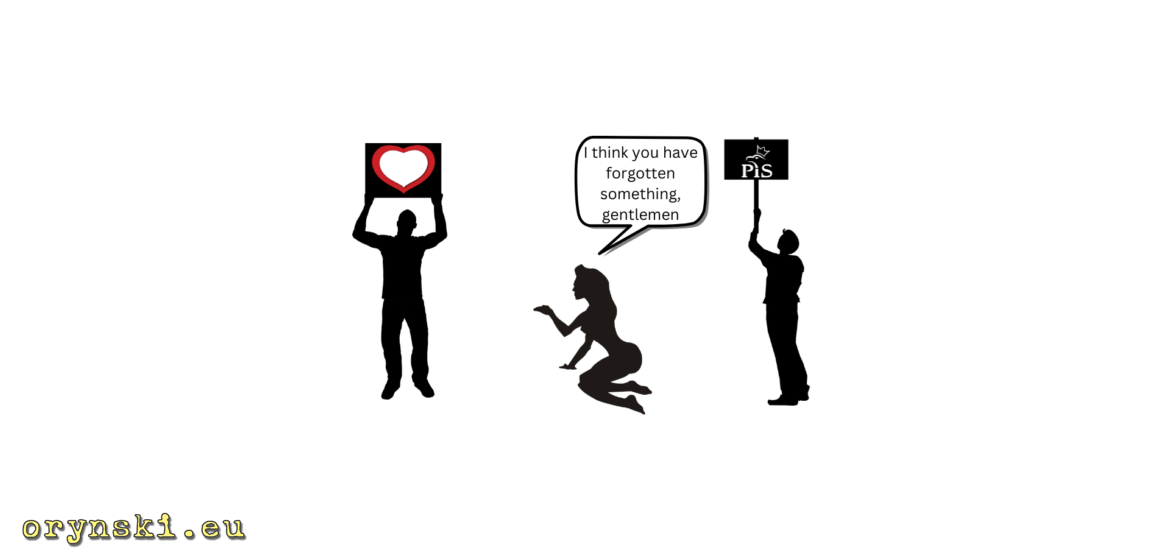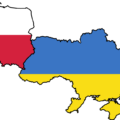100 days of Donald Tusk’s government has passed and it is going worse than expected for everyone. But especially for PiS of course. When former Justice Minister Zbigniew Ziobro was mocking the new government from the parliament’s rostrum shouting at them “I hope you won’t be such a bunch of ninnies this time”, he probably never expected them to take him under investigation for embezzling money from the justice fund (I wrote about this time in this series several times, first time in 2017). But the opposition voters are also disappointed.
Click HERE to read the previous part of the series
Click HERE to see all the chapters of the series so far.
But let’s take things in order. One thing can be said about the new government, they learned their lesson from the last time they took power after PiS – when they failed to make Ziobro face the State Tribunal – and took to settle accounts with PiS straight away. A three separate parliamentary commissions investigate money defrauded by illegal attempts to organize postal presidential elections during COVID (see here), a Pegasus eavesdropping scandal (see here) and the visas-for-bribes scandal (see here).
The number of ordinary investigations into various crimes, scandals and embezzlements in which politicians of the former ruling party are involved is so great that, honestly, even though I still try to keep my eye on things, I lost count long time ago. The biggest investigation looks into the Justice Fund, a financial institution that was supposed to support victims of crimes and instead served as Solidarna Polska (a PiS satellite party led by Zbigniew Ziobro) as a mechanism to reward their political allies. They were funding everything, from fire trucks for the pro-PiS local government, to the construction of the huge building containing several TV studios by a shady foundation run by a former exorcist priest known for “exorcising the daemons of veganism from an underage girl” by force-feeding her head cheese (more on this here) – it is assumed that this multimedia centre was Ziobro’s attempt to create an TV station independent from PiS controlled media, that back then included TVP and Tadeusz Rydzyk’s media empire. At the same time, the real NGOs that were actually trying to assist victims of crimes ended up starved of government grants and had to drastically limit their activities, sometimes to the extent where former employees, for example, psychotherapists, were only able to work part-time on a voluntary basis. If not for crowdsourcing, many of those organizations would not survive at all, which because they were already established to fill the void left by the lack of state-provided institutions, significantly impacted the well-being of the crime victims.
The reaction of Zbigniew Ziobro shows not only his hypocrisy but also how he fell into his own traps – he piloted several changes to the law that gave the prosecutors more rights and probably he was so sure he would never lose power, that he never thought to plug them back after he used them to harass his political opponents.
Every line of defence falls. When Ziobro and his colleagues argue the search was illegal because he has immunity as an MP, the other side quotes all the examples when prosecutors under Ziobro searched the opposition MP’s houses and offices. When he complains that they should call him beforehand to tell him they are going to search his house then – when everybody stops laughing – it is pointed out, that when Ziobro was doing political searches and arrests the only people warned beforehand were reporters from PiS-controlled TVP to ensure they will be ready with their cameras.
Ziobro himself is allegedly suffering from throat cancer and that, according to him, makes it impossible to face interrogation by the prosecutors. But when he was in charge, the health condition of the person under investigation never stopped him from trying to achieve his targets, like when they tried to charge Roman Giertych when he was lying unconscious in the hospital (see here). Not to mention that he had no problem answering a journalist’s questions on live TV for nearly 40 minutes.
An interesting aspect is that Ziobro left the country for his therapy. Some say it is an attempt to avoid justice, but the fact that he came back to Poland to express his outrage about having his house searched suggests that the reason might be different. Ziobro is known for harassing doctors who treated his father in the hospital when he unfortunately died of a heart condition. For 18 years he was doing everything in his power to drag them through court and have them sentenced for malpractice. Not only did he take the case all the way to Strasbourg (where he lost) but also he abused his power as a minister of justice and chief prosecutor to force his subordinates to endlessly appeal and reopen the investigation. During a recent search, a file related to his father’s death was found in Ziobro’s house -which is illegal for three reasons:
– minister should not take confidential documents home
– as he ceased to be a minister and prosecutor on the 27th of November, he should return all work-related items in his possession immediately
– and, last but not least, as he is a party, he should not be allowed to see those particular documents regarding his father’s case.
With such obsession and thirst for revenge on the doctors (whom he accuses of “conducting medical experiments on his father” as they tried to save his life using a then relatively new technology) maybe this is a reason why he was unable to find doctors willing to take a risk of treating him in Poland?
The investigation regarding the Justice Fund is the biggest so far, but many politicians of PiS and Solidarna Polska have reasons to be afraid too. But mostly those from Solidarna Polska, as this party with minuscule support, was afraid that Kaczyński would submit them to PiS or marginalize them, so they were trying to find funds everywhere they could – in the Ministry of Justice, in the State Forest, which were largely under their control, or by misusing the funds allocated to them by the European Parliament. So while PiS politicians officially defend their colleagues, behind the scenes the crack is visible, especially with Kaczyński not growing any younger, the subject of taking over his legacy is already taken into consideration. And so according to insiders, Morawiecki has already demanded removing Ziobro’s people from the parliamentary club and Michał Dworczyk called them “parasites”, while Solidarna Polska politicians, such as Patryk Jaki are now trying to attack Morawiecki for, amongst others, supporting EU’s Green Deal.
But things are not going well in PiS itself, as can be seen even from the aforementioned parliamentary commissions where PiS politicians after initially attempting to just refuse to answer any question break one after another and accuse their party colleagues, desperately trying to shift the blame from themselves. If the justice system will work as it should, and if the tool of the parliamentary commission will be used rightly, the next couple of years might mean the end of PiS, at least in the form we know.
But while everyone – except PiS – welcomes bringing PiS people to justice for their crimes, there is a bad aftertaste when we realise that while the government was very keen to – as many, for example from right-wing Konfederacja party see it – take revenge on their political opponents, the other important issues remain unaddressed. There is still business as usual at the Belorussian border, and despite promises from Donald Tusk or Adam Bodnar – former Human Rights Ombudsman and today’s Minister of Justice – nothing is being done. An NGO organisation Grupa Granica reported that the body of the 59th victim of the illegal push-back system had been found in the forest last month (those readers who understand Polish might want to listen to one of my recent podcasts when I interviewed the organisation’s spokesman here). Another activist recently published a picture of the injuries of a refugee who had been allegedly badly beaten by the Polish border force. Also in Police, although the chief of police lost his job (and he is finally being investigated for blowing up the Police HQ after he set the grenade launcher off in his office – the previous government considered him to be a victim (!) ) in the lower rank it seems that the police officers who persecuted opposition can feel safe. One of them even got promoted and only after that sparked a widespread outrage the decision was overturned.
But perhaps the biggest disappointment to anyone who was naive enough to believe Donald Tusk’s sudden change of heart is the question of women’s rights. It was the Women’s strike that finally brought PiS down and it was PiS’s treatment of women that angered society so badly that we had a record-high participation in the last elections, which ensured the opposition’s victory. But after the new government made themselves comfortable in their chairs, we are back to the usual “now is not the time to discuss women’s rights” tune. This was a particularly damaging blow to Szymon Hołownia, who became very popular due to his casual but firm conduct as a speaker of the lower chamber of the parliament, but this popularity seemed to instantly evaporate when he decided to delay proceedings of the pro-abortion bill submitted by the Left. His line of argument was that this is a divisive subject (where he was in the autumn of 2020, when everyone and their uncle went to the streets in defence of women’s rights, which resulted in one of the biggest protests in recent Polish history – despite the thing taking place in the height of Covid lockdowns?) and as such should wait after the local election. But after the local election, there will be EU elections. After those – presidential elections. And so on. Those who say “Now it’s not the time to discuss women’s rights” always find some excuse, as they have been doing since the early 1990s. And Tusk is one of the major culprits here.
In my personal opinion, Poles have only themselves to blame. With society shifting towards more progressive views in relation to things like women’s rights, LGBT rights or relations between the state and the church, it would be only natural for us to vote the Left. But many people – my friends included – fell for that narration promoted by Citizen Platform that they are the only force capable of stopping PiS. This tactical voting of a kind ended up with many left-wing voters supporting Tusk, but then it is a bit silly of them to expect Tusk to realise the postulates of the parties they decided NOT to vote for.
Unfortunately, criticism of anything related to Tusk is met with fierce anger from the pro-Tusk people. For example when a portal Wirtualna Polska published the article suggesting that prosecutor Ewa Wrzosek (persecuted by PiS for trying to investigate their illegal attempt to organize a postal election and now tasked with defending public media from PiS attempts to retake it) broke the rules by using a private law firm to write court application on her behalf, the pro-Citizen Platform crowd instantly turned to attack the wp.pl portal for that they used to publish Solidarna Polska’s propaganda under the name of the imaginary journalist. This is a valid point, and Wirtualna Polska definitely should come open and disclose everything if they want to be considered a trustworthy medium, but this does not invalidate the results of their investigation about Wrzosek (especially if it was written by journalists who didn’t even work in WP back then). When you look at the public discourse, now everyone who criticizes the new government’s actions is instantly labelled as “defender of PiS”.
This will be undoubtedly Kaczyński’s legac: creating a rift is as deep as never before within Polish society. There is no way of reasoning with pro-Kaczyński’s fanatics, but apparently pro-Tusk ones are not much better. And no matter who is in charge, it is never good when you aren’t allowed to criticize the government.
This text was written for Britské Listy





